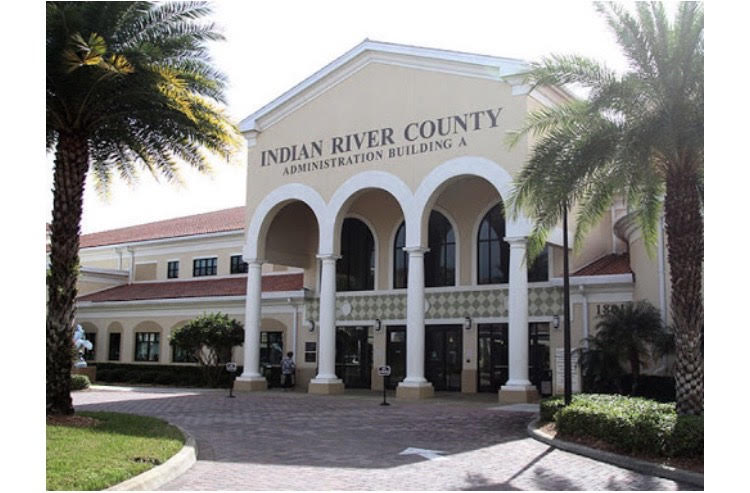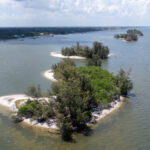
The Indian River County Commission put funding for lagoon restoration and beach renourishment at the top of its list of goals to achieve during the 2021 Florida legislative session that begins March 2. Enhanced safety requirements for high-speed passenger rail service are another item on the list.
Lagoon-wise, the county wants state lawmakers to appropriate about $1.1 million toward an $11.3 million improvement to the South County water treatment plant aimed at increasing the drinking water supply by nearly one million gallons per day while reducing total nitrogen loads entering the lagoon by nearly 5,500 pounds per year and phosphorus by 143 pounds per year. Nitrogen and phosphorus are nutrients generated from land-based activities that contribute to harmful algae blooms in the estuary.
“The lagoon has been our number one priority for quite some time,” said Commissioner Susan Adams. “That’s because of the economic impact, recreational impact, the tourism, and the environmental fallout from an unhealthy lagoon.”
Number two on the commission’s priority list is $7.5 million to restore more than 6.6 miles of beach and dunes battered by hurricanes and nor’easters stretching from just south of Seaview to Turtle Trail Beach Park.
Phase one of the project – from Seaview to Wabasso Beach Park – is slated to begin in January with completion by April 30, 2021; phase two would commence in the fall of 2021 and wrap up by the spring of 2022. The county has already received some $9.7 million from the Federal Emergency Management Agency.
“These projects have such large price tags, so we’re pushing for a newly dedicated and statutorily-recurring source of funding,” Adams said. “We are advocating for a funding source that’s not funding multiple other projects. A lot of counties are doing large-scale renourishment projects and driving costs up.”
Third on the request line for 2021 is adequate safety requirements for high-speed passenger rail service. The county has tried everything possible to keep Brightline – which some commissioners have dubbed the ‘Death Train’ – from operating here. But now that court and administrative challenges have failed, commissioners are urging the state to hold rail operators accountable for making tracks and crossings safe.
“In 2021, our hope would be that the Legislature and Florida Department of Transportation would be more focused on ensuring that safety improvements are required in a manner that doesn’t burden local governments financially,” Adams said.
Newly elected commissioner Laura Moss offered to serve as point person on the train issue, but her colleagues told the former Vero Beach mayor and councilmember that her position is not in line with theirs and made chairman Joseph Flescher their representative instead.
“The county has been opposed to the train project from the get-go, and commissioner Moss, I think your intent was, ‘We want the train; where are we going to put the station?'” commissioner Peter O’Bryan told her.
Other Indian River County priorities include expanding broadband internet service to rural and underserved communities, now that the COVID-19 pandemic has forced many people to work remotely and required some students to undertake distance learning; modifying Florida’s existing 75-percent recycling goal to be based on energy efficiency rather than the weight of recycled materials; allowing local governments to regulate short-term vacation rentals; and dedicating revenues from the state’s tax on real estate transactions to help local governments fund affordable housing programs.






